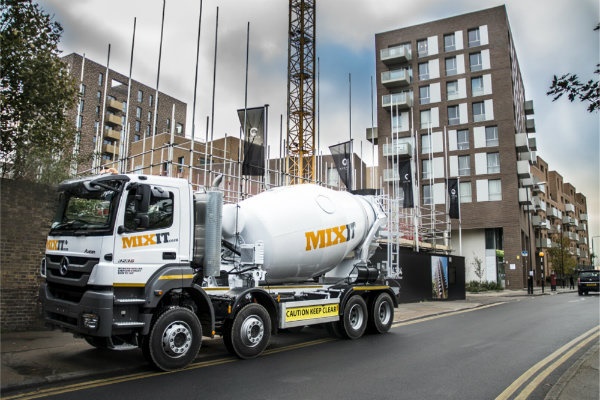It is certainly not easy to oversee the omnipresence and use of concrete in our society. Concrete holds an important place in our day to day lifestyle. It is used to build residents, schools, hospitals, bridges, canals, tunnels, pavements, roads, sewerage systems, runways and many more useful things.
Arguably, concrete is the most widely used humane-made material in this whole world. As revealed in a study, about 3 tons of concrete is used for every man, woman and child every year. And this is double the total of all other construction materials available out there including plastic, steel, wood and aluminium.
No other building material can match the affordability, durability and effectiveness of concrete for a host of applications. Yet, very few people are aware of the environmental benefits of using concrete. the buildings or structures constructed using concrete as a core material proved to be more energy efficient, sturdy and eco-friendly.
Thanks to its peerless physical characteristics, today concrete is a key element in green buildings and rest parts of the country. There is no doubt that green buildings is the future of the construction world. The thermal mass, exceptional durability and unrivalled strength of concrete has made it the first choice of contractors.
Many research groups in the country are currently busy exploring the qualities of concrete that can contribute in the formation of a more sustainable society. Let’s dive into some major eco-friendly physical attributes of concrete.
The Environmental benefits of Concrete
- Durability and Strength
- It is used in construction of structures that demand higher durability and strength such as bridges, dams, tunnels and buildings.
- It increases in strength over time.
- It doesn’t get affected due to moisture, pests and mould.
- You will find numerous buildings and structures dotted all across the Great Britain built of concrete centuries before and they still exist. This shows that concrete structures are capable of withstanding natural calamities like storms and earthquakes. It also speaks in volume about the long lasting lifecycle of this crown jewel building material.
- Versatile Applications
Whether it is a small summer patio, pavement or a building work, concrete can be used for a wide pool of applications making it a versatile material.
- Lower Maintenance
Concrete is non-porous and inert material; simply put, it doesn’t compromise on its finish and inner strength with the passage of time.
- Economical
When compared to other building materials, concrete is cheaper to manufacture and thus available at a much affordable price. You may also order ready mix cement to fasten the building process without compromising on the quality quotient.
- Fire-proof
Concrete is a fire-resistance material; so structures made out of concrete turn out to be extremely helpful in preventing fire risks.
- Lower Carbon Emission
Both concrete and the latest version of the concrete called ready mix concrete (RMC) ensure smallest carbon footprint in comparison to other building material. In fact, ready mix concrete is more sustainable when considered CO2 emission during the product manufacturing process. Moreover, all the raw ingredients used in the production of RMC are sourced from the nature and they are recyclable as well.
Ready-mix concrete is an energy-efficient, resource-efficient, thermal variation-proof, and a highly sustainable building material. Contact your local concrete supplier company to learn more about ready mix and its numerous benefits to the environment today!
Author Bio:
The author is a concrete consultant with more than 10 years of experience in the concrete industry. When not busy with clients, he enjoys spreading word for the many benefits of using ready mix concrete in building projects.
